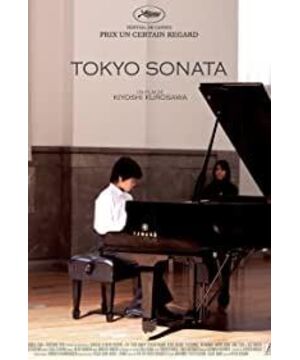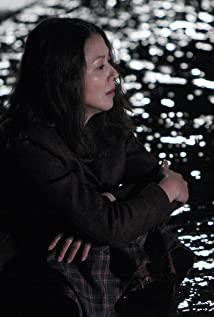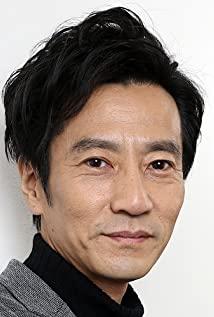Family-themed films have been produced in Japan in recent years, and excellent works have appeared frequently. From Yamada Yoji's "Mother" to "Walking" by Hirokazu Ededa, they are all based on ordinary families in real life, and the warmth is permeated with human nature. veiled emotions. In fact, Japanese stories and observations around the word "family" have never stopped. The observation and performance of this kind of emotion should have been held to the peak during the period of Yasujiro Ozu, and the two films shot by Yamada Yoji or Hirokazu Koeda were all criticized to follow the style of Yasujiro Ozu. Of course, the so-called Inheritance is only on the subject and some of the bridges, rather than the overall inheritance. Such comments have also been copied and placed on the body of "Tokyo Sonata". After all, what the camera expresses is the daily life of ordinary people. However, if this one has the most tones, who makes Kurosawa the master of horror Come on, how can he stop if he doesn't play tricks!
The first minute and a half of the film is the most beautiful scene in the whole film. The gentle wind blowing from the quiet room, flipping the newspaper and blowing the book, all suggest the gentle waves in the calm, and the long shot of tatami height It is an obvious tribute to Ozu.
Sasaki, the male protagonist played by Teruyuki Kagawa, has been abandoned by his life from the beginning of the film, and has been laid off from the position of middle management in the company to the prestige of the head of the family being challenged by his son. This situation is not only The true portrayal of today's society in Japan also presents the indifferent blood ties in the family. The most frequent scene in the film is the scene of eating, different angles, different times, and different people in the family. There is only one scene where the whole family of four eats together, which inevitably reminds people of Xu Anhua's bland narrative in "Tian Shui Wai Day and Night", but it is truly bland! And here, behind every dinner scene, the life changes of the family members are hidden. The father tries his best to maintain the dignity of the head of the family and does not say the word unemployment; the mother is mild but eager for someone to pull her out of the housewife life. The eldest son is rebellious and challenges the patriarchy, while the youngest son is docile but has his own opinions; such a family is peaceful but turbulent. Such a detailed and comprehensive description is a detailed plot that has not been seen for a long time. Although some people compare this film with Yang Dechang's "Yi Yi", they seem to forget that there is a shadow of Japanese culture in Taiwanese culture. However, the inner questioning and the rendering of the inner voice all have the same method and application.
If "Tokyo Sonata" develops in this way, it will be directly hailed as a good film by most people, but the director's general plot change in two-thirds of the film is a little puzzling, and there is even an extra dark black Humor is interspersed. It was the appearance of Koji Yakusho, who played the thief, that changed all of this and made the plot rush to a multi-line climax. The mother releases her repressed nature, the father seeks the starting point of destiny like Lola rushing away, and the two sons also experience their own transformations. Such an unbalanced and common sense makes the film more dramatic and abrupt, and it is also the focus of people's questioned saliva to crusade. The director metaphorically symbolizes the traditional male status in Japanese society and the collapse of patriarchal culture. In fact, this is also shown everywhere in the film.
The end of the film is still a return of warmth. After the twists and turns, everything goes in the direction of hope. In Debussy's "Moonlight Sonata", the dawn can be seen leisurely, and a long-lost silence will replace all emotional ups and downs.
(Quanzhou Radio and Television Newsletter, do not transfer business!)
View more about Tokyo Sonata reviews











